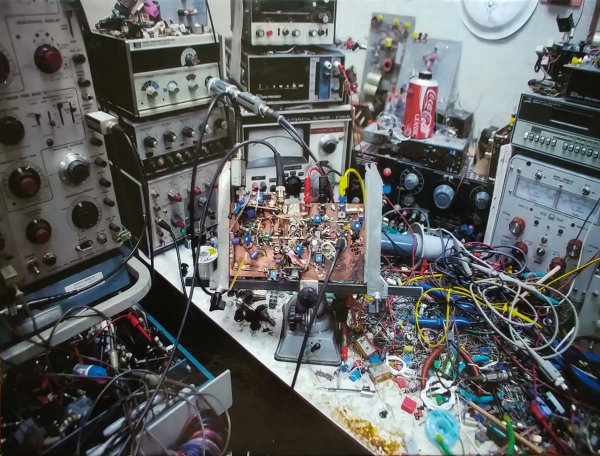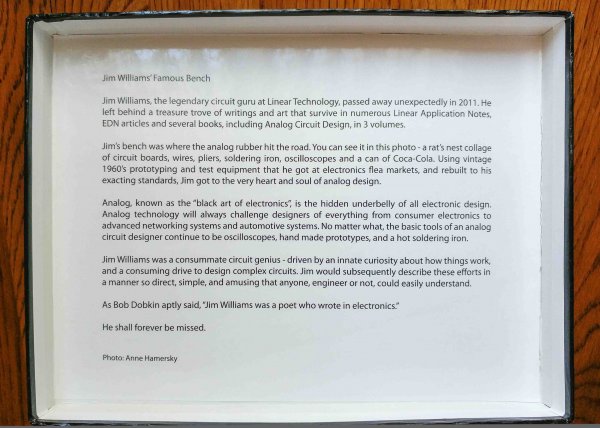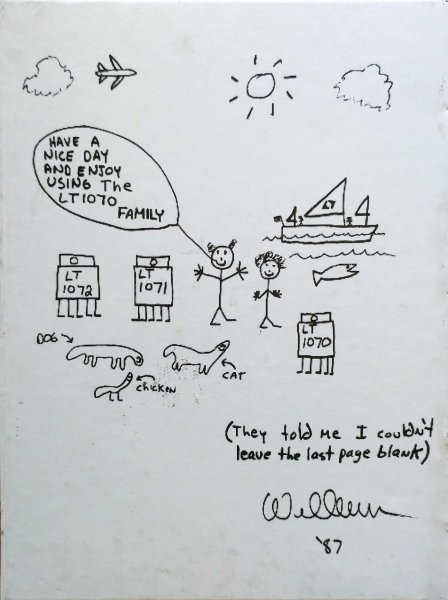OK since a few of you did what I would do, i.e. ignore the instructions and google

, let me add more to the answers provided.
Jim Williams was not just a good engineer, but a revered God in analog world to just about every engineer. Not because he invented some big thing. He did not. What he did was teach all of us how to be an engineer for real. When you go get a degree in engineering, you are not taught a single practical thing. You are supposed to learn that later. One of those ways was to sit there and study what we call "App Notes" or application notes. App notes are the chip manufacturer's demonstration of what you could do with their ICs using just a few additional parts. This is where Jim Williams comes in. While working for leaders of analog ICs like National Semiconductor and Linear Technologies, he wrote literally thousands of such app notes.
Here is an example from Jim Williams on how to use just one Linear Tech (LT) part and a couple of transistors to build a power amplifier:
To an engineer coming out college who still has no clue how to design a power amp, such circuits and accompanying text and measurements were gold mines. What was even better was when a collection of these were put together in a book like this:
I still have mine and they were the most fascinating reading I ever did. An op amplifier or two acting as a multiplier? A log function? A synthesizer? Such things made electronics real for many of us. And no person had a larger role by far in this that Jim Williams. A man that I did not know when I was learning all that I was learning from app notes.
So his job was not to create an ipod but to build little prototypes that demonstrated a practical application for certain chip, to then allow someone have the skills to design an ipod. In that sense, he was the
engineer's engineer. His job was to teach the designers of your audio equipment, not build anything for end users.
As to his workbench, when you work with analog parts, there is no sane way to keep your desk clean. You are dealing with hundreds of little parts, wires stripped and cut, etc. Part of the "fun" is digging through such piles and having the satisfaction to find a part in there!

Here is a short video of Jim Williams at his home repairing a scope but giving a glance of his life prior to that:
The picture we saw was actually his lab. Engineers have two work spaces. Their desk and the lab. They design at their desk. They test and fix things in the lab. Since his sad fatal stroke in 2011, Linear Tech has made an exhibit of one of those lab desk as it was:
For us as engineers, it is the sign of greatness that Jim had. This is his office in the same company:
And that bench was one of four he used. This is another area in his lab:
So much cleaner. The story goes that he kept that desk so messy as to keep others from walking away with his parts and tools! Since labs are shared by everyone in the company, the story rings true.
Think of Jim Williams as the best teacher you had in school or college that taught you the most. They wouldn't be famous for inventing anything. But would be one of the most important people in your professional life.
We, the engineers, all lost a great teacher in 2011. Messy desk and all. Rest in Peace Mr. Williams. I owe you a lot.












